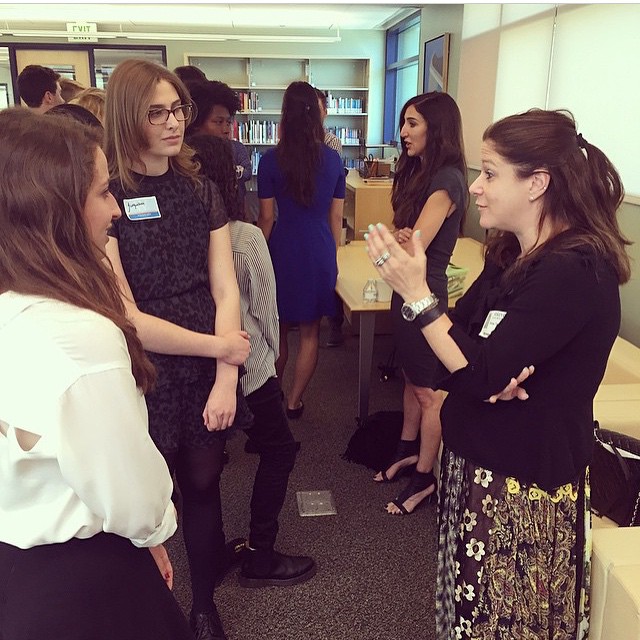
10 Oct Dos and Don’ts of Hosting College and Career Fairs
It’s that time of the year! Teachers are swamped with writing letters of recommendation, counselors are busy reviewing college essays, parents are doing their best to keep track of all the college visits, and students are making sure all of the above are actually getting done. On top of all that, this is also a popular time for schools to host college and career fairs. Every September, I receive several invitations to represent Skillify at these fairs.
Along with those invitations, I also receive requests from counselors to help with the organization of these fairs. The majority of the counselors I have spoken with that are responsible for college and career fairs share their concerns regarding effectiveness, student engagement and follow-through. After all, there is a reason why schools dedicate resources to such fairs, and we want to make sure those resources are being put to good use.
I have had the pleasure of collaborating with many schools on improving their college and career fairs, and here are some lessons I’ve learned:
1. Do prepare students ahead of time.
Often times, counselors invest weeks (if not months) finding incredible people to represent their colleges or companies at these fairs. Counselors make sure these people are welcomed properly, have the necessary information, and are given ample time to learn about the high school before it’s go-time. Personnel from impressive universities and companies re-arrange their calendars to make sure they can support their local high schools.
But when they arrive, many find that the students are ill prepared to interact with them. Students are not aware of the colleges or companies that may be present – they did not get a list ahead of time. Many students do not know where they’re supposed to go as no agenda was available to them. And most importantly, they realize that the majority of students do not know how to interact with the guests because none were taught how to network.
College and career fairs are essentially networking events for students – an opportunity for students to learn about local programs and jobs available to them. But if students are not prepared ahead of time, they will not be able to take advantage of the resources counselors work so hard to present to them. Before any fair, host a mandatory networking workshop during advisory/guidance periods to ensure all students are in the right mindset and equipped with the proper skillset to make the most out of a fair.
2. Don’t only invite colleges.
I have attended some fairs where the only representatives in attendance are from two year or four year universities. Even if your school has a 100% college-bound rate, allow your students to discover a variety of post-secondary options, such as gap years, trade schools, service, etc. A significant percentage of students do not continue with college despite enrolling in one – it is important that they learn about the many post-secondary options available to them.
3. Do enforce a dress code.
If you feel a certain way, you will act a certain way. Having students dress in business casual is not only an opportunity to teach them about proper attire, but also will make the fair more professional for all attendees. Furthermore, when students dress up for an occasion, they take that occasion more seriously. Show examples of the dress code ahead of time. Make sure all students know how to dress for the college and career fair. And make sure students understand that they can dress professionally no matter their budget. Local organizations like Goodwill and Dress for Success can provide attire just as any department store could.
4. Don’t wait to collect feedback.
Before attendees leave the college and career fair, hand them a printed one-page questionnaire. Or have them complete a two minute digital survey. The earlier you receive feedback following an event, the more accurate the feedback will be. Also, make sure to collect feedback from all types of attendees, from the students to the representatives to the parents.
5. Do encourage follow-through.
Whether you introduce this concept before or after the event, ensure all students know how to follow up with the people they meet at the fair. Introduce the importance of thank you emails and nurturing connections. Provide students with email templates that help them request informational interviews and phone calls with the representatives. Whenever possible, ask students who they stayed in contact with. This is an important metric for the overall effectiveness of your college and career fairs.
6. Don’t do all of the work yourself.
Here’s the best part about implementing the five lessons above. They allow you to be able to rely on your students to help you with future college and career fairs. The schools that I have been working with long-term are at the point now where students are able to refer connections from local companies and universities to attend their high school fairs. These students have learned professional etiquette. They are able to network with guest speakers, local professionals, and family connections. As a result, they’re able to leverage these connections for future college and career fairs. They will contribute to the overall effectiveness of such events. Allow your students to get involved with planning such events. Empower them to find local opportunities to share with the greater community.
I hope these lessons help you make the most of your college and career fair this season. Feel free to share some of your own experiences as well!

No Comments